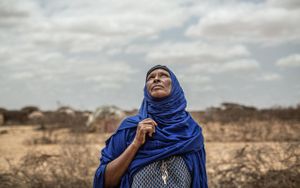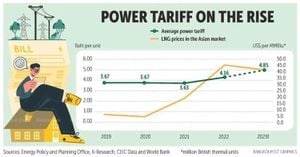On February 4, the world unites to observe World Cancer Day, and with the looming projection of over 700,000 new cancer cases expected to be diagnosed in Brazil by 2025, the urgency for awareness and action is greater than ever. This year's theme, set by the Union for International Cancer Control (UICC), is 'United by the Unique,' which not only addresses the individual experiences of those diagnosed but also underlines the pressing need for personalized and compassionate care.
Cancer is not merely a clinical condition; it encompasses complex human stories filled with resilience, challenges, and the fight for survival. According to data from the Instituto Nacional de Câncer (INCA), more than 240,000 people succumbed to cancer-related ailments last year alone, with projections indicating it could become the leading cause of death by 2030. Dr. Eduardo Cândido from the Federal Association of Gynecology and Obstetrics (FEBRASGO) notes, “Even without family history of cervical cancer, women are still at risk due to human papillomavirus (HPV) infections.” Hence, early detection and empowerment through knowledge are pivotal.
The lesser-known rights of patients battling cancer also require widespread education. Brazilian legislation allows cancer patients access to various benefits such as tax exemptions, priority healthcare services, and even the ability to withdraw from their Severance Indemnity Fund (FGTS). Yet, many remain oblivious to these entitlements, facing bureaucratic red tape amid their fight against the disease. Dayana Boareto, who teaches law at Centro Universitário Integrado, urges, “Let it be known: access to these rights is fundamental for improving quality of life during treatment.”
While debates on cancer often center around treatment advancements, they must also include public policy reforms. The launch of the National Policy for Cancer Prevention and Control back in 2023 was touted as groundbreaking, yet its full implementation is still delayed. The necessary regulations have yet to be published, hindering the promised improvements from reaching patients. “If we don’t tackle systemic issues within our healthcare, we can’t achieve equity for cancer patients,” says Luciana Holtz, leader of the Oncoguia Institute.
It’s not just about treatment; the fight against cancer must address the social and emotional aspects of patients’ lives. A comprehensive, multidisciplinary approach is needed for care, including psychological, nutritional, and social support. February 4 serves as both a reminder of the struggles faced by the millions affected and as a call to action for governments, health professionals, and citizens alike. Ensuring accessibility to holistic cancer care can make all the difference.
The complexity of cancer—over 100 different diseases—demands our attention. Researchers are continuously seeking answers to why certain mutations lead to cancer. Scientists suggest, “Molecular changes—mutations—play a significant role, but they cannot wholly explain tumor development,” states Douglas Hanahan, esteemed researcher at the Ludwig Institute for Cancer Research. We now understand the importance of epigenetic changes and their contribution to cancer development.
Also noteworthy are the environmental factors influencing cancer risk. Research highlights the potential carcinogenic threats posed by air pollution and other environmental toxins. “Emerging evidence suggests air pollution could contribute to rising lung cancer rates,” states W. Kimryn Rathmell, former director at the National Cancer Institute. The socio-economic disparities tied to these environmental risks reveal the urgent need for preventive measures and equitable healthcare access.
For many, the question of treatment efficacy looms large. With significant strides made in immunotherapy and personalized medicine, there is genuine hope for improved cancer management. “We've moved from thinking 'you will die from this cancer' to 'we have exciting therapy options available,'” remarks George Demetri, senior vice president of experimental therapeutics at the Dana-Farber Cancer Institute.
Despite these advancements, barriers remain. New medications introduced to healthcare systems are often met with uneven access, particularly for patients relying on public health systems. Equity is key to ensuring all patients receive the best possible care. The challenges surrounding the provision of both innovative and basic cancer care underline the pressing necessity for strategic public health policies.
February 4 is more than just another date on the calendar; it’s about uniting advocacy, awareness, and actions aimed at bringing about change. Whether through public events, educational campaigns or legislative initiatives, every effort counts. Only by fostering collaboration between health professionals, supporters, and passionate individuals can the fight against cancer truly make strides.
This World Cancer Day, everyone is invited to participate actively—join hands, share stories, rally support for your local cancer initiatives and speak out against inequalities faced by cancer patients. The reality is as poignant as ever: the battle against cancer is personal, it's collective, and it starts now!
By integrating individual narratives with systemic improvements, World Cancer Day 2025 aims to make tangible impacts on lives, fostering hope, community, and most critically, change.



